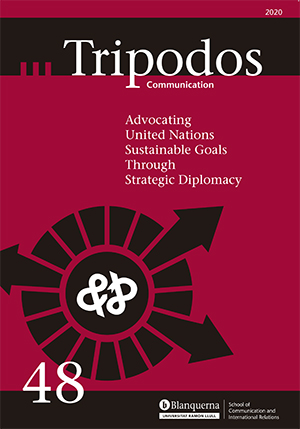Freedom of Expression, Social Media Censorship, and Property Rights
Article Sidebar

Main Article Content
https://doi.org/10.51698/tripodos.2020.48p53-67
Sustainable Development Goal 16 stresses the importance of access to information. It is clearly emphasised in target 16.10 —“to ensure public access to information and protect fundamental freedoms, in accordance with national legislation and international agreements”. With social media becoming the default communication platforms, the questions of the extent to which their content moderating models are conducive to the implementation of public access to information and fundamental freedoms are becoming increasingly important. Facebook, Instagram, Tumblr as well as Twitter and other social media platforms have been recently criticised for censorship of user-generated content. This article looks at the controversy surrounding these policies from the property rights perspective —focusing on the role which property rights play in securing the freedom of expression. By recognising the owners’ right to control the legitimately owned property, I conclude that social media are not engaged in “censorship” —they merely exercise property rights. There is a difference between a private platform refusing to carry someone’s ideas on their property and a government prohibiting from speaking on a legitimately owned property. Keywords: SDG 16.10, freedom of expression, censorship, social media, property rights.
Article Details
Articles més llegits del mateix autor/a
- Pavel Slutskiy, Enric Ordeix, Allocating Responsibility for the Damage from Deceptive PR-Materials Disseminated by the Media: A Thought Experiment , Tripodos. Facultat de Comunicació i Relacions Internacionals Blanquerna-URL: Núm. 42 (2018): New Perspectives on Cross-Cultural Communication and Corporate Diplomacy